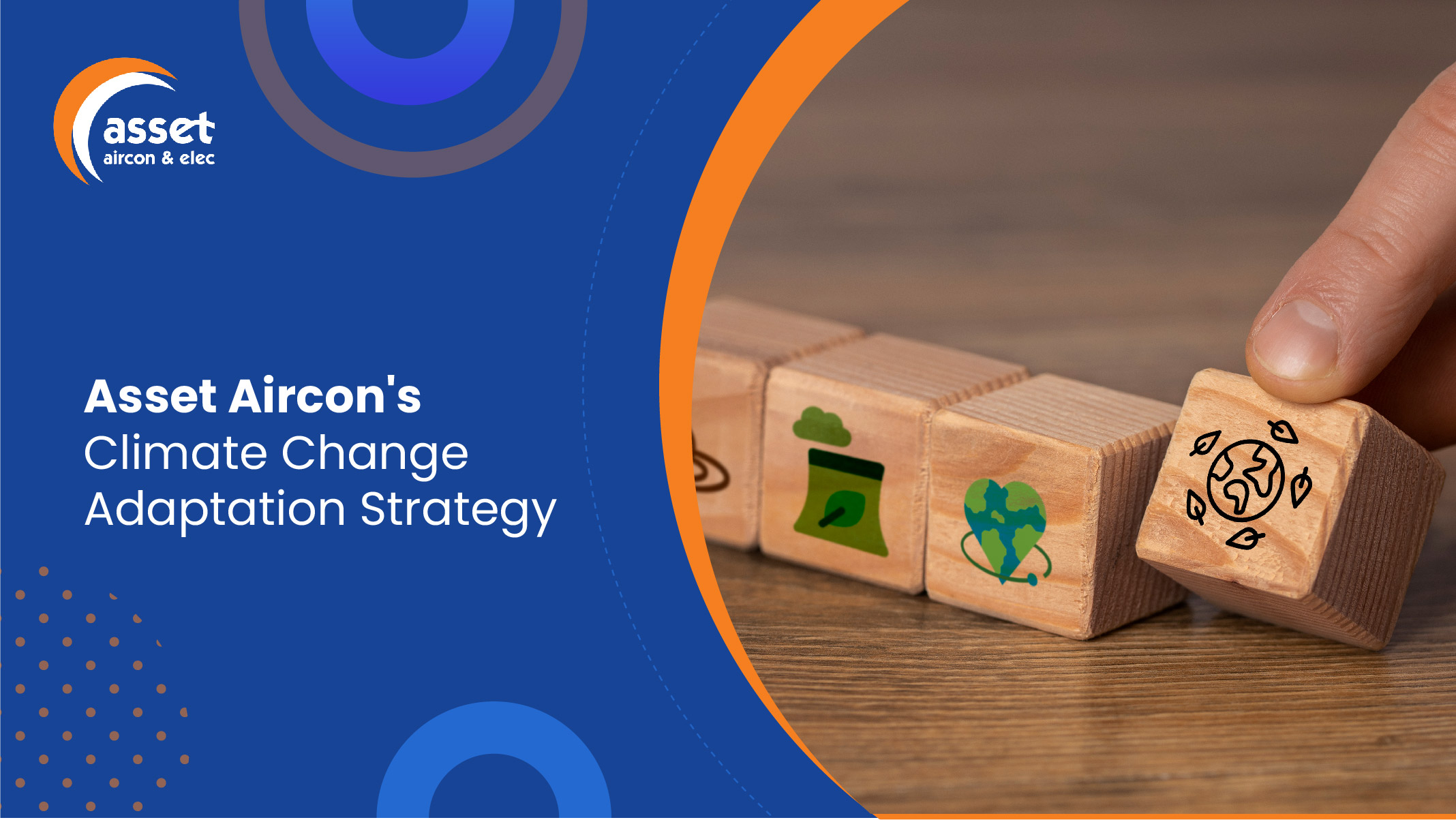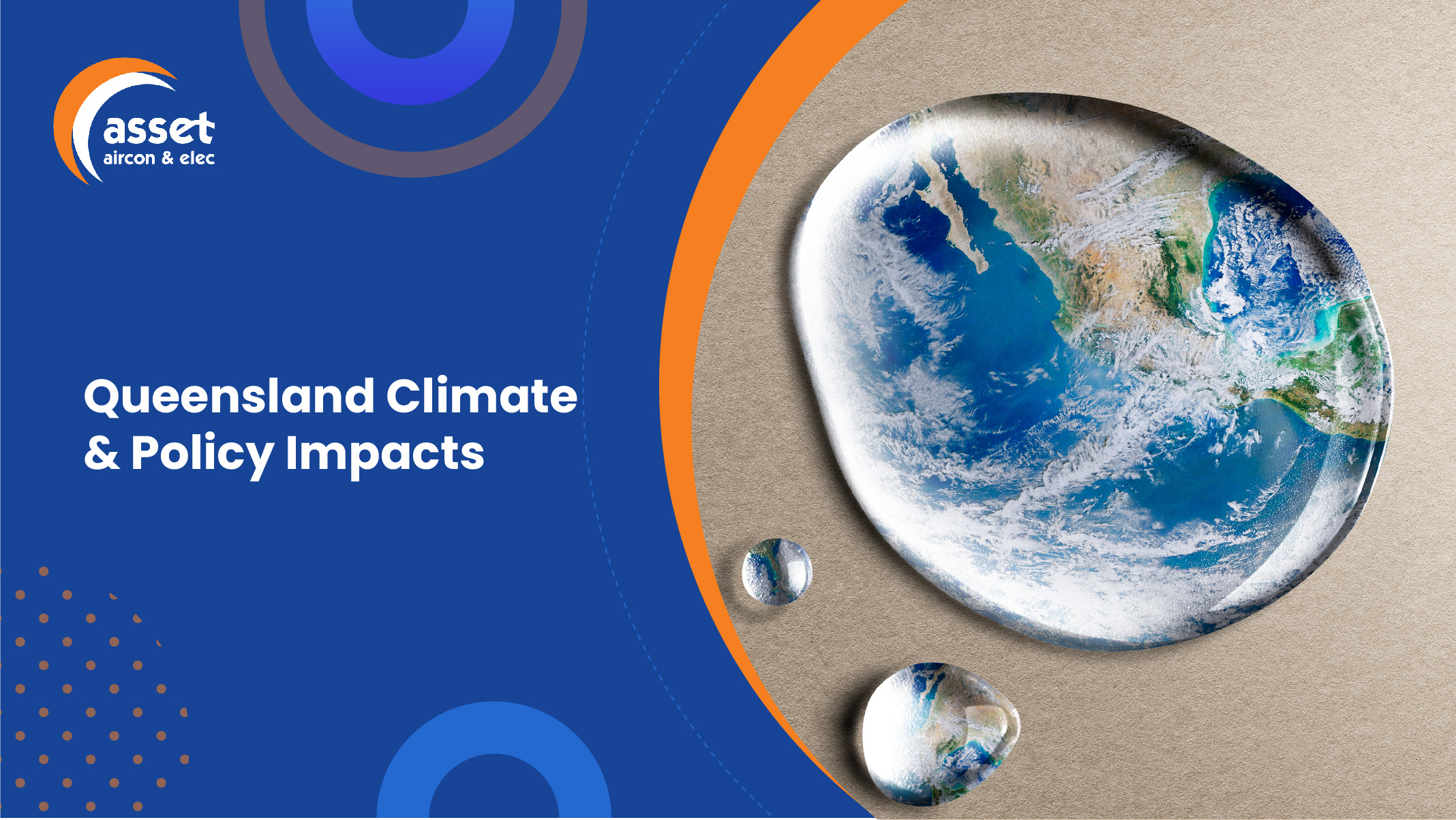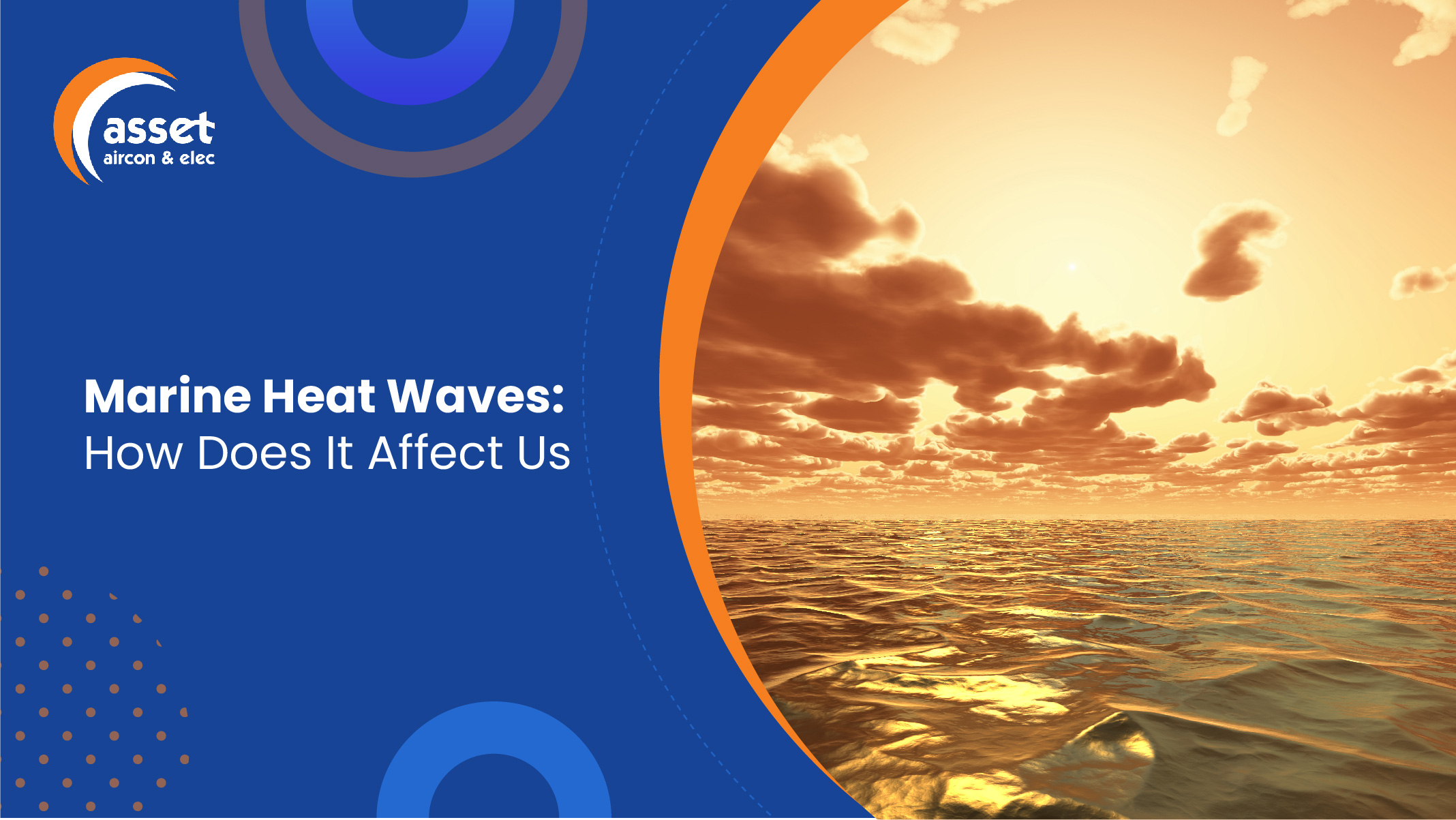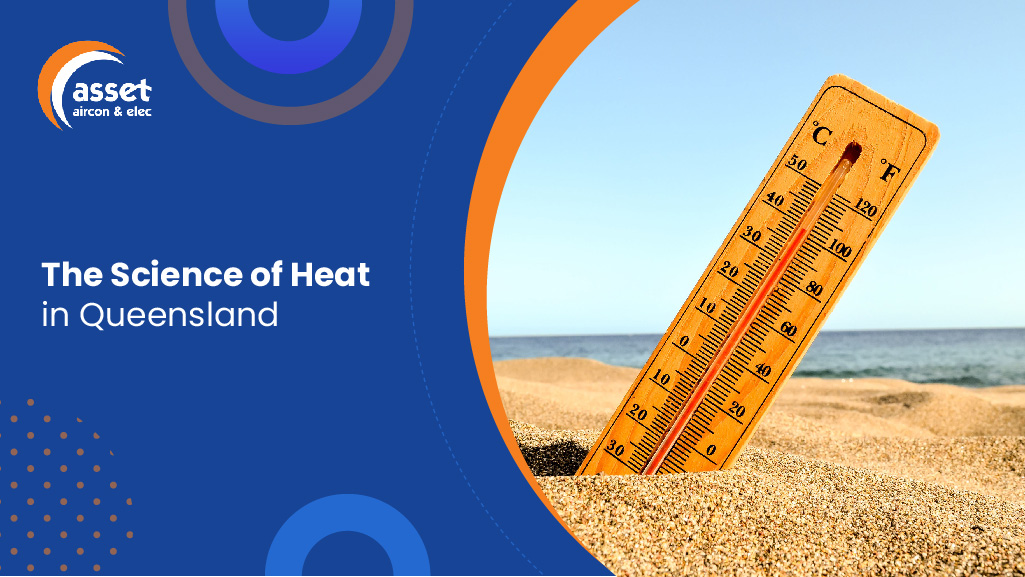Queensland, is renowned for its immense biodiversity, including rainforests, beaches, and the iconic Great Barrier Reef. The Queensland climate heavily influences this diverse environment. However, global warming has brought significant challenges, altering the temperate climate this region was famous for. It’s a pressing reality that calls for in-depth research, innovative technological advancements, and adaptive solutions. Queenslanders are facing the ramifications of global warming and are at the forefront of finding sustainable solutions. The change in the Queensland climate is not just a statistic. It’s felt in the longer summers, witnessed in bleaching corals, and heard in the concerns of locals.
Table of Contents:
Innovations in Eco Cooling
The Science of Heat in Queensland
Leading the Sustainable Cooling Front
Marine Heat Waves: How Does It Affect Us?
Queensland Climate & Policy Impacts
Asset Aircon’s Adaptation Strategy
Innovations in Eco Cooling
As global temperatures continue to rise, the demand for effective cooling solutions in Queensland’s climate has never been higher. This intensified need has driven a wave of technological and ecological innovations designed to provide comfort without exacerbating environmental challenges. One such sustainable solution is the creation of vertical gardens on high-rise buildings. These living walls, comprising various plant species, act as nature’s air conditioners. They absorb the sun’s heat, provide shade, and release cool oxygen, substantially lowering a building’s internal temperature and the surrounding area. This innovation transforms urban jungles into eco-friendly habitats, reducing the urban heat island effect, which often intensifies the effects of global warming.
Yet, the quest for sustainable cooling continues after plants. Aware of the escalating demands, companies are diving deep into research and development to find solutions that align with ecological needs. Air Conditioning Gold Coast | Asset Aircon & Elec is a pioneering firm positioned at the nexus of technology and ecology. Our range of air conditioning systems, especially renowned in regions like the Air Conditioning Gold Coast, are not merely about providing comfort. They’re a blend of efficiency, sustainability, and forward-thinking design. Such innovations are not just about battling the current heat but are a testament to the foresight in preparing for the future. Curious about how these systems work and the science behind them? We delve deeper into this in a detailed guide that explains the magic behind sustainable cooling. Find out more in our comprehensive guide here.
The Science of Heat in Queensland
Understanding the intricacies of the escalating heat in Queensland requires a deep dive into the science of meteorology, geography, and human-induced factors. This isn’t just about recording higher temperatures; it’s about discerning the multiple contributors leading to these changes. Urbanization, for instance, has played a pivotal role. With their concrete jungles, cities absorb and retain more heat than rural areas, a phenomenon known as the Urban Heat Island effect. This, combined with deforestation, where trees that naturally cool the environment are cut down escalates temperatures to uncomfortable levels.
Then there’s the bigger picture of global warming, where increasing greenhouse gas emissions trap more heat in the Earth’s atmosphere. The repercussions are felt more profoundly for Queensland, situated close to the equator. With longer and hotter summers, there’s a cascade of ecological challenges, from the bleaching of the Great Barrier Reef to shifting agricultural patterns. But what does this all mean for the everyday Queenslander? And how do industries, especially those in the cooling sector like Air Conditioning Gold Coast | Asset Aircon & Elec, maneuver in this new norm? The intricate dance between global factors, local challenges, and individual adaptations is a topic that needs its own space. To explore these relations and their implications more comprehensively, check out our deep dive into the complexities of Queensland’s warming dynamics here.
Leading the Sustainable Cooling Front
The quest for sustainable cooling solutions has become paramount in an era where global warming and the evolving Queensland climate pose challenges. While effective in the short term, conventional air conditioning methods could be more sustainable. The vast amounts of energy they consume and the hydrofluorocarbons they release contribute significantly to the problem they’re trying to alleviate. Thus, there’s a desperate need to revamp and rethink cooling, especially in regions grappling with soaring temperatures.
With its tropical climate, Queensland stands at the forefront of this transformation. Local companies, government agencies, and research institutions pool resources to drive innovations in this space. For instance, Air Conditioning Gold Coast | Asset Aircon & Elec, a dominant figure in the Air Conditioning Gold Coast sector, is pioneering efforts to combine the latest technology with sustainable practices. The goal isn’t just to cool spaces but to do so with the least carbon footprint possible. Whether by integrating solar energy, utilizing eco-friendly refrigerants, or maximizing energy efficiency through smart systems, moving towards sustainable cooling isn’t just a trend but a necessity. But how do these innovations come to life, and what’s the real impact on the ground? The intricate balance of science, innovation, and ecological responsibility is an expansive topic. For a more in-depth exploration of Queensland’s lead in sustainable cooling, dive into our comprehensive piece on the revolutionary changes in this sector here.
Marine Heat Waves: How Does It Affect Us?
Marine heatwaves, though less publicized than their terrestrial counterparts, have profound implications for our ecosystems, economies, and ways of life. These events, characterized by prolonged periods of anomalously high sea temperatures, have become more frequent and intense due to global warming. Their impact isn’t confined to the marine ecosystem; it ripples through various facets of human life, emphasizing the interdependent relationship we share with our oceans.
The ecological ramifications are vast. Coral bleaching events, where corals expel the algae that give them their vibrant colors due to stressful hot conditions, directly result from marine heat waves. This not only affects the aesthetic beauty of our reefs but has severe repercussions on marine biodiversity. These reefs act as breeding and feeding grounds for numerous marine species, and their deterioration threatens the entire marine food chain. Economically, industries like fishing and tourism, especially in places like Queensland with its iconic Great Barrier Reef, take a hit. With diminished fish populations and less vibrant reefs, local and global economies can suffer significant downturns. Socially, coastal communities that rely on the sea for their livelihood face uncertainties, underscoring the human cost of these climatic events. Understanding their intricacies and ripple effects becomes vital given the multi-dimensional effects of marine heatwaves. If you’re curious about the science behind these marine phenomena and their broader implications on our world, dive deeper into our exhaustive analysis of marine heatwaves here.
Queensland Climate & Policy Impacts
The Queensland climate, characterized by its tropical and sub-tropical patterns, is at the mercy of broader global warming trends. The socio-economic impacts become palpable as the state grapples with more extreme weather conditions, from intensified cyclones to prolonged droughts. Given the unpredictable and sometimes harsh climatic shifts, agriculture, tourism, and even day-to-day living are under strain. Such a reality makes it clear that addressing these climate challenges isn’t just an environmental imperative but an economic and social one.
In response, the Queensland government, in tandem with local authorities, has initiated several policies aimed at mitigation and adaptation. On the mitigation front, there’s a concentrated push towards renewable energy sources, reducing the state’s carbon footprint. Programs incentivizing solar installations, wind farms, and even bio-energy solutions are a testament to this shift. Adaptation strategies, on the other hand, are multifaceted. As discussed earlier, they span from improving infrastructure resilience to setting up early warning systems for extreme weather events. Crucially, companies like Air Conditioning Gold Coast | Asset Aircon & Elec, with their stronghold in regions like the Air Conditioning Gold Coast, are recognized as essential partners in this policy-driven climate adaptation journey. The intertwining of climate realities with policy initiatives in Queensland offers a rich tapestry of challenges and solutions. For a granular look at how policies are shaping and, in turn, being shaped by Queensland’s climate realities, check out our in-depth coverage of this intricate dance of nature and governance here.
Asset Aircon’s Adaptation Strategy
As the global community becomes more aware of climate change’s implications, businesses must adjust to this new reality. One such firm leading the charge, particularly in the Air Conditioning Gold Coast region, is Air Conditioning Gold Coast | Asset Aircon & Elec. Recognizing the challenges posed by the evolving Queensland climate, this forward-thinking company has meticulously devised strategies to stay relevant, sustainable, and efficient in an age of unprecedented climatic alterations.
Air Conditioning Gold Coast | Asset Aircon & Elec’s adaptation strategy is holistic and hinges on innovation. The core of this strategy is developing and promoting energy-efficient air conditioning systems that utilize the latest technological advancements. By harnessing solar energy, for instance, the company is shifting away from traditional energy sources that contribute to global warming. Moreover, they’re investing heavily in research to identify and incorporate eco-friendly refrigerants with minimal environmental impact. But it continues beyond the product level. At an operational scale, Air Conditioning Gold Coast | Asset Aircon & Elec is integrating sustainability into its supply chain, training modules, and even its customer service touchpoints. This comprehensive approach ensures that every business facet aligns with a cooler, more sustainable Queensland vision. Such endeavors by industry leaders shed light on the path forward for other businesses in an era of climatic unpredictability. Keen on understanding the finer details of Air Conditioning Gold Coast | Asset Aircon & Elec’s pioneering strategies and how they set the gold standard for adaptive business models? Immerse yourself in our deep dive into our innovative journey here.












